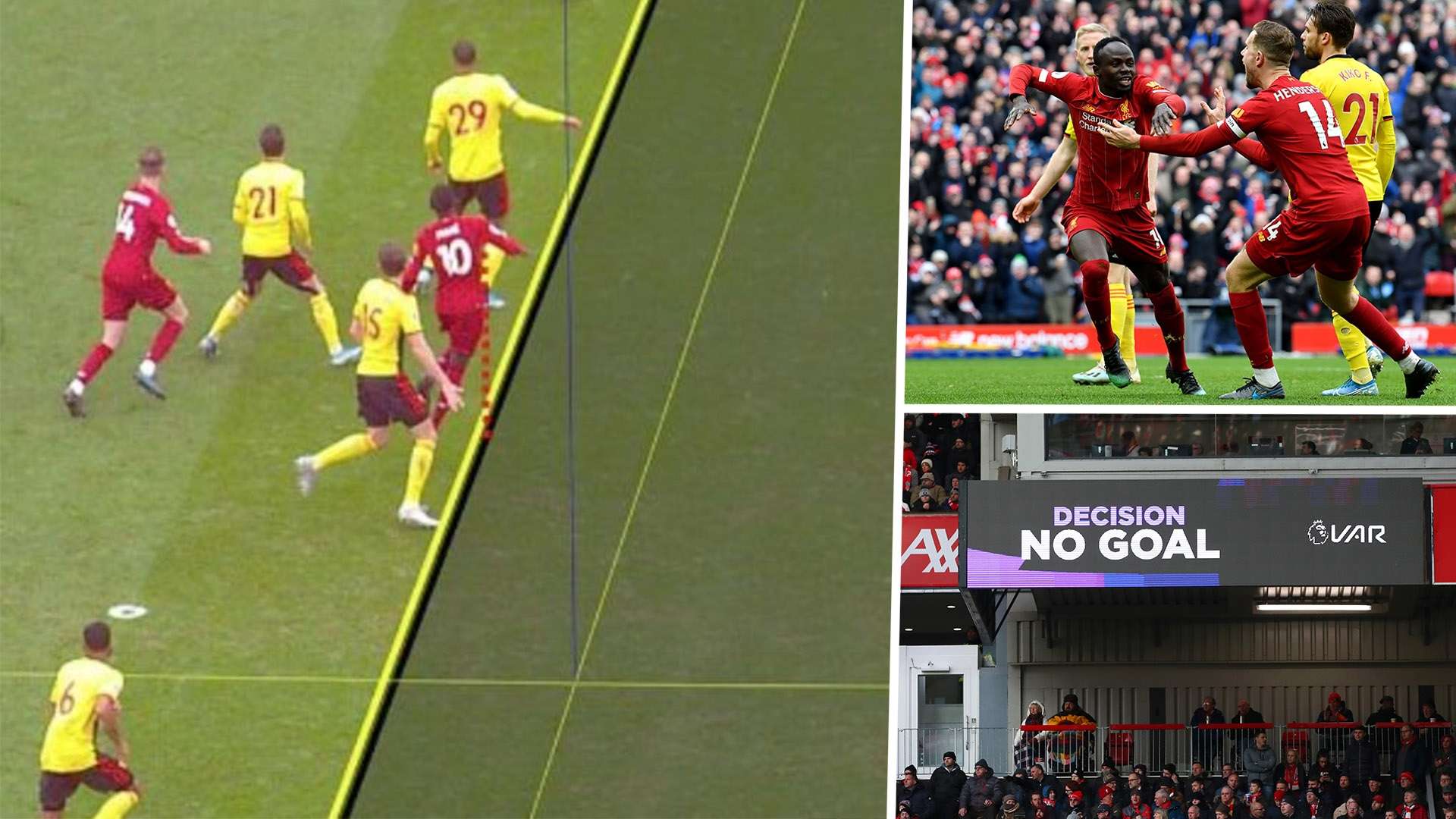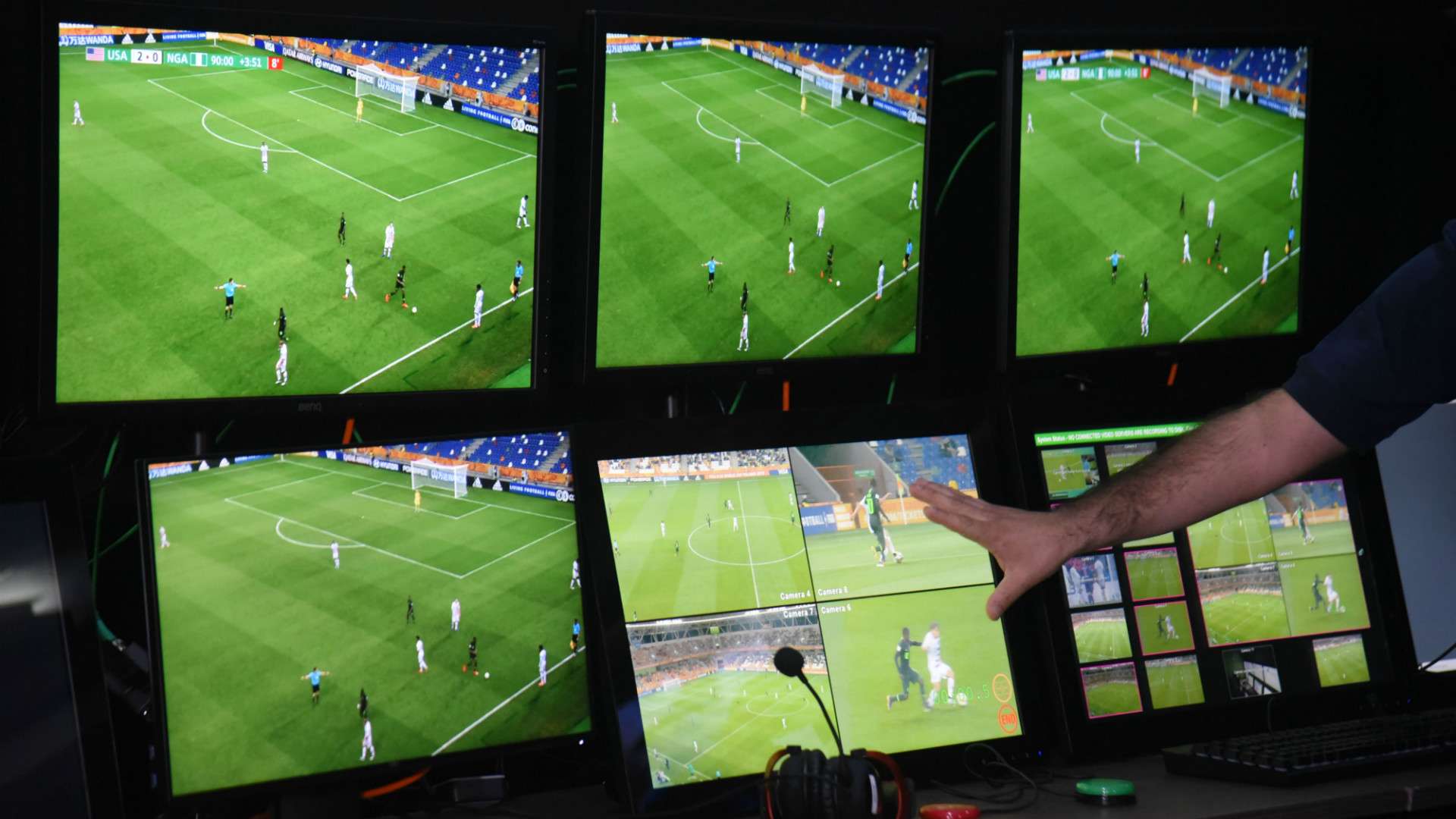Former Premier League referee and current head of the Professional Referee Organisation (PRO) Howard Webb says that the usage of Video Assistant Referee (VAR) technology will never be able to remove all controversy from the game, but to aim is to move as close to perfection as possible.
Webb has been in charge of PRO since 2017 as he became the Manager of Video Assistant Referee Operations, with part of his duties focusing on the implementation of VAR in MLS.
PRO helped introduce VAR into MLS during the 2017 season, just several months after the A-League in Australia became the first league use the technology in a top-flight professional club competition.
The system has since been introduced in leagues all over the world, with 36 total domestic competitions featuring VAR while the technology is also used in the World Cup and UEFA Champions League among other international and continental competitions.
The implementation of VAR has not been without controversy, though, as the technology's use in the Premier League and during last summer's Women's World Cup drew criticism for a number of controversial rulings.
But Webb says that the system, although not yet perfected, does far more good than it does harm as it gives officials the best chance of getting the call right when all is said and done.
"There's no doubt, though, that the existence of VAR gives officials confidence," Webb told reporters, "because when they will make the decision, they will know it's going to be checked by a colleague who's highly trained and an intervention will come if, in the opinion of that highly trained individual, it's clear error has been made.
"So we don't expect perfection, but we aim for it. We find we're getting better each time and more efficient each year. But I would caution people never to expect they'll agree with every single outcome every time because we're still dealing with human beings and I think in some ways people don't don't actually mind that."
During Webb's time overseeing the usage of VAR in MLS, the system has improved each and every year, the former referee believes.
In 2019, referees reviewed 41 of 1,257 total goals scored in MLS play with 27 of those goals eventually being ruled out. Overall 97.85 per cent of MLS goals did not require VAR intervention, while, following internal reviews, 99.46% percent of goals were fairly scored throughout the season.
The most hotly-debated calls, generally, are offiside rulings, with former Arsenal boss Arsene Wenger proposing a change in the rule in an effort to reward attackers.
 Getty/Twitter
Getty/Twitter
Webb says he is "open-minded to potential rule changes and technology as it develops, as long as it helps referees correctly call a match".
"[MLS Vice President of Competition Jeff Agoos] and I both sit on the FIFA working group around innovation in video review, so we're keeping a close eye on how the auto offside tracking, for example, develops," Webb added. "If it's something that is proved to be accurate and can deliver messaging to the officials in an efficient way, a quick way, then we'd certainly look to try it out in our competition.
"They're not quite there yet in terms of the automatic body part tracking on offside. Undoubtedly it's something that I think they will get to, and it will assist us in delivering precise offside determinations. The key for me though is how quickly that is communicated to the on-field officials because offside is also is only one part of the equation.
"Being in an offside position is not in itself an offense; there has to be something done by the player in the offside position to be penalised. That's where you need the human element as well. So, something that could tell the officials that a player is in an offside position is useful, that's the starting point, then the outfield officials can make a judgment as to where that person needs to be penalised."
In total, MLS featured a total of .36 reviews per match in 2019, which Webb says roughly aligns with the rest of the world. A majority of those reviews assessed potential penalties, with 67 reviews looking at fouls in the box, 43 analysing potential red cards and two utilised to correctly identify a player. In total, there were 153 reviews through 421 matches.
Agoos and Webb said that increased transparency would be a key focus for them this season. PRO hosts frequent conference calls to address questions about controversial calls as well as weekly breakdowns. An MLS VAR account has also been created on Twitter, offering followers a chance to receive updates on calls and why they were made.
 Getty
Getty
One potential addition down the line could be an on-field explanation from the referee, similar to those made by officials in the National Football League.
Webb says the human element of the game will always remain and that certain rules will always cause controversy, but he believes VAR will continue to improve the game as referees and league officials become more familiar with the technology involved.
"What we've learned over our VAR journey is that,at the end of the day, a human being is utilising the system as a VAR, and he's making a judgment based on their professional experience and expertise as to whether or not to intervene," Webb said.
"I remember, going back to 2017, when I presented a town hall session and people were saying 'VAR will stop all controversies and stop talking points!', when you would never do that.
"What you could do though is reduce the number of clear errors that will impact our game or situations where we miss something that's significant. And there's no doubt in MLS over the three seasons now that we've used it, it's had a net positive on the game.
"We're seeing lots and lots of really good interventions that are helping the game but there will always be subjectivity and a lot of our training is based around that, around identifying consistently what isn't clear and obvious from an outfield point of view. "
